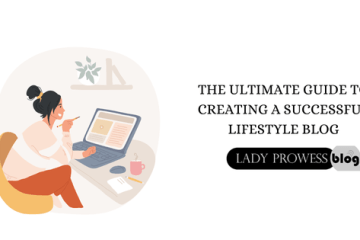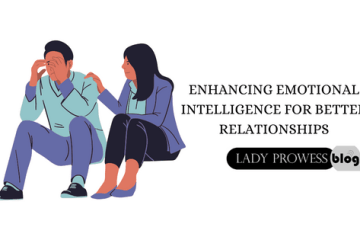Breaking Down Common Misconceptions about Feminism
Feminism, a movement that has been around for centuries, has been subject to numerous misconceptions and stereotypes. Despite its efforts to promote equality and challenge societal norms, feminism is often misunderstood and misrepresented. In this blog post, we will delve into some of the most common misconceptions about feminism and break them down with facts and logic.
What is Feminism?
Feminism is a social and political movement that advocates for the rights, equality, and empowerment of women and girls. It seeks to challenge and dismantle the social, cultural, and economic structures that perpetuate inequality and discrimination against women.
The core principles of feminism include:
- Equality: Feminism advocates for equal rights and opportunities for women and men in all aspects of life, including education, employment, healthcare, and politics.
- Empowerment: Feminism seeks to empower women and girls to make their own choices and decisions about their lives, bodies, and futures.
- Challenge patriarchal norms: Feminism challenges the patriarchal norms and stereotypes that perpetuate inequality and discrimination against women.
- Promote inclusivity: Feminism promotes inclusivity and intersectionality, recognizing that women’s experiences and challenges vary across different cultures, races, classes, and identities.
- Challenge systemic inequality: Feminism seeks to address systemic inequality and discrimination against women in all areas of life, including education, employment, healthcare, and politics.
Feminism is not about:
- Hating men: Feminism is not about hating or blaming men but about challenging the systems and structures that perpetuate inequality.
- Seeking superiority: Feminism is not about seeking superiority over men but about achieving equality and equal opportunities.
- Limiting men’s rights: Feminism is not about limiting men’s rights but about expanding women’s rights and opportunities.
Feminism has different waves and branches, including:
- First-wave feminism: Focuses on women’s suffrage and equal rights.
- Second-wave feminism: Focuses on social and cultural equality, reproductive rights, and challenging patriarchal norms.
- Third-wave feminism: Focuses on intersectionality, inclusivity, and challenging systemic inequality.
- Fourth-wave feminism: Focuses on digital activism, social media, and online advocacy.
What are the Misconceptions about Feminism?
Here are some common misconceptions about feminism:
Misconception #1: Feminism is about hating men
One of the most common misconceptions about feminism is that it’s a movement that hates men. This couldn’t be further from the truth. Feminism is about promoting equality between men and women, not about hating or discriminating against men. Feminists believe that men and women should have equal rights, opportunities, and respect and that everyone should be treated with dignity and respect, regardless of their gender.
In fact, many men are feminists and support the movement’s goals. Feminism is not about pitting men against women but about recognizing and challenging the societal norms and systems that perpetuate inequality.
Misconception #2: Feminism is only for women
Another misconception is that feminism is only for women. While it’s true that feminism was initially focused on women’s rights, the movement has evolved to include people of all genders. Feminism is about promoting equality and challenging societal norms that affect everyone, regardless of their gender.
Transgender people, non-binary individuals, and men can all benefit from feminist ideals and principles. Feminism is not exclusive to women; it’s a movement that seeks to create a more just and equitable society for everyone.
See Also: Enhancing Emotional Intelligence for Better Relationships.
Misconception #3: Feminism is about being anti-family
Some people believe that feminism is about being anti-family or anti-children. This is a misconception that has been perpetuated by those who believe that feminism is about women abandoning their traditional roles as caregivers and homemakers.
In reality, feminism is about giving women (and men) the freedom to choose their own paths in life, whether that means being a stay-at-home parent, a working professional, or a combination of both. Feminism is about recognizing the value of caregiving work and advocating for policies that support families, such as paid family leave and affordable childcare.
Misconception #4: Feminism is about being anti-sex
Some people believe that feminism is about being anti-sex or anti-pleasure. This is a misconception that has been perpetuated by those who believe that feminism is about restricting people’s freedom to express themselves sexually.
In reality, feminism is about promoting healthy and consensual relationships where both partners have equal agency and respect for each other’s boundaries. Feminism is about recognizing that sex should be a positive and enjoyable experience for everyone involved and that consent is essential.
Misconception #5: Feminism is about being a “man-hater” or a “feminazi.”
The terms “man-hater” and “feminazi” are often used to describe feminists who are seen as extreme or radical. However, these terms are often used to silence and marginalize women who are speaking out against patriarchal systems and advocating for their rights.
In reality, feminism is about challenging systems of oppression and advocating for equality and justice. Feminists are not “man-haters” or “feminazis”; they are people who care deeply about creating a more just and equitable society.
Misconception #6: Feminism is only for white, middle-class women
Some people believe that feminism is only for white, middle-class women who have the privilege of being able to focus on their careers and personal development. This is a misconception that has been perpetuated by those who believe that feminism is about individualistic goals rather than collective liberation.
In reality, feminism is about recognizing and challenging the intersecting systems of oppression that affect women of color, working-class women, and women with disabilities. Feminism is about creating a movement that is inclusive and representative of all women, regardless of their background or identity.
Misconception #7: Feminism is about being a “special interest” group
Some people believe that feminism is about promoting the interests of a specific group (women) at the expense of others. This is a misconception that has been perpetuated by those who believe that feminism is about creating a hierarchy of oppression where women are at the top.
In reality, feminism is about recognizing that women’s rights are human rights and that promoting equality and justice for women benefits everyone. Feminism is not about creating a special interest group but about creating a more just and equitable society for all.
Misconception #8: Feminism is about being “PC” or “politically correct”
Some people believe that feminism is about being “PC” or “politically correct” and that it’s about avoiding language or behaviors that might be seen as “offensive” or “insensitive.”
In reality, feminism is about challenging the language and behaviors that perpetuate systems of oppression and inequality. Feminism is
about recognizing the power of language and how it can be used to marginalize or empower certain groups.
Misconception #9: Feminism is about being “angry” or “bitter.”
Some people believe that feminism is about being “angry” or “bitter” towards men or society. This is a misconception that has been perpetuated by those who believe that feminists are motivated by a desire for revenge or resentment.
In reality, feminism is about being passionate and committed to creating a more just and equitable society. Feminists are not “angry” or “bitter”; they are driven by a desire to challenge systems of oppression and promote equality and justice.
Misconception #10: Feminism is a “Western” or “white” movement
Some people believe that feminism is a “Western” or “white” movement that is imposed on non-Western cultures. This is a misconception that has been perpetuated by those who believe that feminism is a product of Western culture and values.
In reality, feminism is a global movement that has been shaped by women from diverse backgrounds and cultures. Feminism is not a “Western” or “white” movement; it’s a movement that recognizes the common struggles and experiences of women across cultures and borders.
What can you do to help break down these misconceptions?
- Educate yourself: Learn about the history of feminism, its principles, and its goals.
- Listen to feminist voices: Listen to the stories and experiences of women from diverse backgrounds and cultures.
- Challenge stereotypes: Challenge stereotypes and misconceptions about feminism whenever you encounter them.
- Support feminist organizations: Support organizations that work towards promoting equality and challenging societal norms.
- Be an ally: Be an ally to women and marginalized communities by using your privilege to amplify their voices and promote their rights.
Conclusion
Feminism is a complex and multifaceted movement that has been subject to numerous misconceptions and stereotypes. By breaking down these misconceptions, we can work towards a deeper understanding of what feminism is and what it stands for. We can work towards creating a more just and equitable society, where everyone has the opportunity to thrive and reach their full potential.



0 Comments